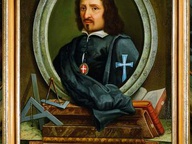Broomberg & Chanarin. Trace Evidence

Broomberg & Chanarin. Trace Evidence.
Dal 20 January 2017 al 17 March 2017
Milano
Luogo: Lisson Gallery Milan
Indirizzo: via Zenale 3
Telefono per informazioni: +39 02 89050608
E-Mail info: milan@lissongallery.com
Sito ufficiale: http://www.lissongallery.com
Per la prima personale alla Lisson Gallery Milan, Broomberg&Chanarin presentano una ampia panoramica delle loro opere che comprendono otto collezioni, dal 2006 al 2016, e che vengono presentate unitamente ad un nuovo lavoro creato ad hoc per la mostra di Milano.
‘Trace evidence’, ovvero le tracce evidenti, è la materia generata dall’attrito di oggetti che entrano in collisione tra loro mescolandosi. Il termine usato è associato alla scienza forense, ovvero alla ricostruzione della scena del crimine dove le persone, i luoghi e le cose inanimate interagiscono fra loro. L’analisi delle opere di Broomberg & Chanarin degli ultimi dieci anni rivela un approccio antropologico e politico alla fotografia contraddistinto da caratteri tipicamente investigativi.
Gli artisti usano la fotografia quale metodo di indagine etnografica, concentrandosi sulle immagini di luoghi e situazioni che svelano le tracce della presenza umana nel passato.
Il loro rifiuto di rappresentare e narrare, attraverso immagini astratte volutamente prive di soggetto centrale o punto focale, costituisce l’elemento che testimonia l'ineffabilità della guerra e dei conflitti. Le opere esposte mettono in risalto la costruzione e l’interpretazione dell’identità umana e possono essere intese come riproduzione di oggetti e soggetti scomparsi. Il titolo della mostra è ispirato ad un recente lavoro di Broomberg & Chanarin creato nel 2015 per il Freud Museum di Londra per il quale commissionarono ad una squadra scientifica della polizia di raccogliere campioni di DNA di capelli e fibre dal copri divano di Freud. Questi risultati sono stati trasformati in un grande arazzo di tessuto rispettando la scala e la struttura dell'originale, così come una serie di immagini ad alta risoluzione di radiografie, tutte raccolte nella la rubrica di Trace Evidence.
Quando gli artisti hanno seguito l'esercito britannico in Afghanistan, piuttosto che fotografare il paesaggio o i soldati in combattimento, hanno testimoniato i momenti di guerra con lunghe immagini astratte. Solo i titoli assegnati successivamente a queste composizioni - The Day Nobody Died or Repatriation (tutti 2008) - alludono al tempo, al luogo e alla morte, creando un alternativo diario di guerra. L'idea di mettere in scena le prove e l’artificio si riferisce all’interesse dimostrato da questi artisti per Bertold Brecht e i suoi esperimenti di poesia e teatro, un'influenza che è evidente anche nel Portable Monuments (2012). Qui gli artisti usano blocchi colorati come controfigure per eventi significativi o personaggi delle fotografie dei giornali. Le finzioni risultanti sono lo strumento per esplorare la documentazione, la diffusione ed il valore delle immagini dei mass media.
Le indagini sovversive nel flusso principale continuano in American Landscapes (2009), che ribalta gli interni degli studi fotografici commerciali degli USA, dove vengono create immagini ancora una volta in contrasto con le regole della rappresentazione. La restrizione fisica e l'espressione personale sono più marcatamente osservate in Red House (2006) dove le foto delle macchie sulle pareti e i disegni realizzati dai prigionieri curdi di un edificio in Iraq rappresentano la registrazione delle tracce di oppressione.
Broomberg e Chanarin affrontano temi politici, religiosi, di guerra e di storia, forzando le linee di frattura associate a questo tipo di immagini e creando nuove risposte e percorsi verso la comprensione della condizione umana. Si sono formati come fotografi e attualmente lavorano per diversi mass media. Attraverso la restituzione minuziosa di oggetti ed immagini ritrovate, Broomberg e Chanarin mettono in scena un'archeologia ed un esorcismo di espressioni estetiche ed ideologiche dietro a metafore accettate dalla cultura visiva, della quale svelano le sue fondamenta per una nuova interpretazione.
Adam Broomberg (nato nel 1970 a Johannesburg, Sud Africa) e Oliver Chanarin (nato bel 1071 a Londra, UK) sono artisti ed attualmente lavorano e vivono a Londra. Sono docenti di fotografia al HochschulefürbildendeKünste (HFBK) di Amburgo in Germania e alla Royal Academy of Art (KABK) alThe Hague in Olanda. Insieme hanno esposto in numerose mostre personali presso diverse istituzioni tra cui: C/O di Berlino in Germania (2016); the Baltimore Museum of Art, USA (2016); the Centre for Contemporary Art Ujazdowski Castle, Warsaw, Polonia (2015); The Freud Museum, Londra, UK (2015); ICA Studio, Londra, UK (2015); Jumex Foundation, Mexico City, Messico (2014); FotoMuseum, Antwerp, Belgio (2014); Mostyn, Llandudno, UK (2014); Townhouse, Cairo, Egitto (2010); Musée de l’Elysee, Lausanne, Francia (2009) e the Stedelijk Museum, Amsterdam, Olanda (2006).
La loro partecipazione a mostre internazionali di gruppo include: the British Art Show 8 (2015-2017); ‘Conflict, Time, Photography’ at Tate Modern, Londra, UK; Museum Folkwang, Essen, Germania (2015); Shanghai Biennale, Cina (2014); Museum of Modern Art, New York, USA (2014); Tate Britain, Londra, UK (2014); MathafArab Museum of Modern Art, Doha, Qatar (2013); Gwanju Biennale, Sud Corea (2012) e the KW Institute for Contemporary Art, Berlin, Germania (2011). Le loro operae sono conservate nelle maggiori collezioni pubbliche e private tra cui: Tate, MoMA, Stedelijk, the V&A, the International Center of Photography, Musée de l'Élysée, the Art Gallery of Ontario, e the Cleveland Museum of Art. I principali riconoscimenti includono il ICP Infinity Award (2014) for Holy Bible, ae the Deutsche Börse Photography Prize (2013) for War Primer 2.
Lisson Gallery
Lisson Gallery è una delle più influenti e longeve gallerie internazionali d’arte contemporanea al mondo. Fondata nel 1967 da Nicholas Logsdail, ha aperto la strada alle carriere giovanili di alcuni importanti artisti minimalisti e concettuali, come Art & Language, Carl Andre, Daniel Buren, Donald Judd, John Latham, Sol LeWitt, Richard Long e Robert Ryman. Nella sua seconda decade ha presentato rilevanti scultori britannici, inclusi Tony Cragg, Richard Deacon, Anish Kapoor, John Latham, Julian Opie e Richard Wentworth. Oggi continua a supportare la generazione più giovane, guidata da Cory Arcangel, Nathalie Djurberg & Hans Berg, Ryan Gander, Haroon Mirza e molti altri. Tra i due spazi londinesi, uno a Milano ed un quarto sotto la High Line a New York, la galleria offre supporto e promuove ben 52 artisti di fama internazionale.
SCARICA IL COMUNICATO IN PDF
COMMENTI

-
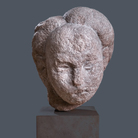 Dal 20 February 2026 al 19 July 2026
Roma | Mercati di Traiano Museo dei Fori Imperiali
Dal 20 February 2026 al 19 July 2026
Roma | Mercati di Traiano Museo dei Fori Imperiali
Constantin Brâncuși. Le origini dell’Infinito
-
 Dal 18 February 2026 al 19 July 2026
Padova | Centro Culturale Altinate | San Gaetano
Dal 18 February 2026 al 19 July 2026
Padova | Centro Culturale Altinate | San Gaetano
M.C. ESCHER. Tutti i capolavori
-
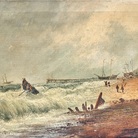 Dal 14 February 2026 al 31 May 2026
Parma | Palazzo Tarasconi
Dal 14 February 2026 al 31 May 2026
Parma | Palazzo Tarasconi
Impressionisti: 100 anni di riflessi. Gli Impressionisti da Monet a Bonnard
-
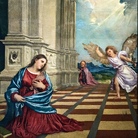 Dal 14 February 2026 al 16 April 2026
Ancona | Pinacoteca Civica Francesco Podesti
Dal 14 February 2026 al 16 April 2026
Ancona | Pinacoteca Civica Francesco Podesti
TIZIANO VECELLIO E LORENZO LOTTO. Due capolavori del Rinascimento alla Pinacoteca Civica di Ancona per due mostre studio
-
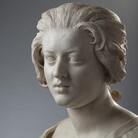 Dal 12 February 2026 al 14 June 2026
Roma | Galleria Nazionale d’Arte Antica in Palazzo Barberini
Dal 12 February 2026 al 14 June 2026
Roma | Galleria Nazionale d’Arte Antica in Palazzo Barberini
BERNINI E I BARBERINI
-
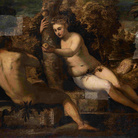 Dal 11 February 2026 al 7 June 2026
Venezia | Gallerie dell’Accademia
Dal 11 February 2026 al 7 June 2026
Venezia | Gallerie dell’Accademia
Tintoretto racconta la genesi. Ricerca, analisi e restauro
